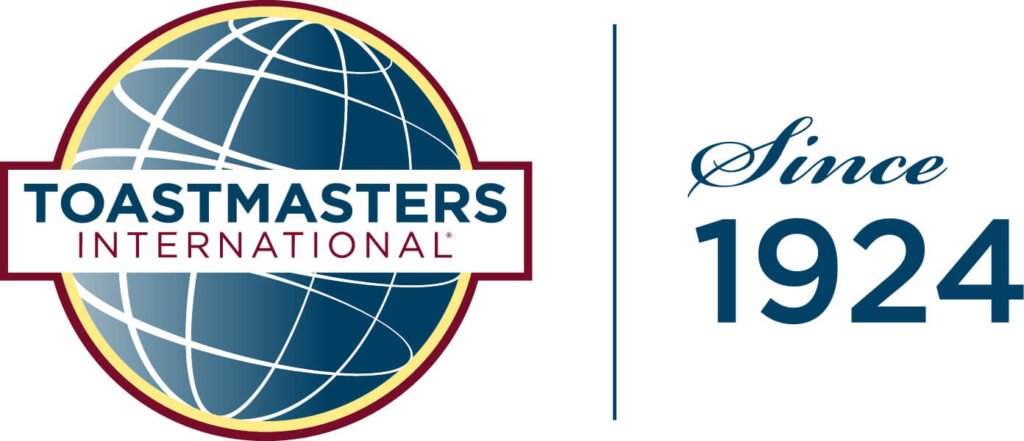
Success Stories from Toastmasters International Members
Public speaking is a common fear that many individuals grapple with. The apprehension of addressing an audience can be debilitating, causing anxiety, nervousness, and even physical manifestations such as perspiration and trembling. However, surmounting this fear is crucial for personal and professional development.
One efficacious method to conquer the fear of public speaking is through practise and preparation. By rehearsing one’s speech multiple times and familiarising oneself with the content, one can build confidence and reduce anxiety. Additionally, visualising success and positive outcomes can help shift one’s mindset from fear to excitement.
Another beneficial strategy is to focus on the message one wishes to convey rather than on oneself. By shifting the focus to the audience and the value one can provide to them, one can alleviate some of the pressure and anxiety associated with public speaking. Furthermore, seeking feedback from trusted individuals can provide valuable insights and constructive criticism to help improve one’s speaking skills.
Joining a public speaking group or enrolling in a public speaking course can also provide a supportive environment for practise and growth. These opportunities allow one to receive feedback, learn from others, and gradually build confidence in speaking before an audience. Lastly, understanding that it is acceptable to feel nervous and that it is a natural part of the process can help alleviate some of the pressure associated with public speaking.
By acknowledging and accepting one’s fear, one can work towards overcoming it and becoming a more confident and effective speaker.
Summary
- Practice deep breathing and positive self-talk to overcome fear of public speaking
- Seek out opportunities for public speaking to advance in professional careers
- Building confidence and leadership skills through public speaking workshops and training
- Prepare and rehearse speeches to increase chances of winning speech contests
- Be open-minded and respectful when navigating cultural and language barriers in public speaking
- Engage in networking and social events to create lasting connections and friendships
- Use public speaking skills to make a positive impact in the community through advocacy and awareness campaigns
Advancing in Professional Careers
Public Speaking: A Key to Career Advancement
Public speaking skills play a significant role in career advancement, as they enable individuals to articulate their ideas, influence others, and establish themselves as leaders within their respective fields.
Building Credibility and Confidence
By honing their public speaking skills, professionals can effectively convey their expertise, build credibility, and gain the trust of their peers and superiors. Moreover, individuals who excel in public speaking are often perceived as more confident, knowledgeable, and authoritative, which can open doors to new opportunities and career advancements.
Standing Out in Competitive Job Markets
Furthermore, mastering public speaking can also lead to increased visibility within the industry, as confident and articulate speakers are often sought after for speaking engagements, panel discussions, and media appearances. Overall, developing strong public speaking skills is a valuable investment for professionals looking to advance their careers and make a lasting impact in their respective fields.
Building Confidence and Leadership Skills
Public speaking is a powerful tool for building confidence and leadership skills. By regularly engaging in public speaking opportunities, individuals can develop a strong sense of self-assurance and assertiveness. Overcoming the fear of public speaking and successfully delivering speeches can boost self-esteem and provide a sense of accomplishment.
Additionally, mastering the art of public speaking can instill a sense of empowerment, as individuals become more comfortable expressing their thoughts and ideas in front of others. Furthermore, public speaking provides a platform for individuals to showcase their leadership abilities. Effective speakers have the ability to inspire, motivate, and influence others, making them natural leaders within their communities and workplaces.
By honing their public speaking skills, individuals can learn to command attention, communicate with clarity, and persuade others to take action. These leadership qualities are highly sought after in various professional settings and can open doors to new opportunities for career advancement and personal growth. Overall, public speaking serves as a powerful tool for building confidence and leadership skills, enabling individuals to become more influential and impactful leaders in their personal and professional lives.
Winning Speech Contests
Participating in speech contests is an excellent way to showcase public speaking skills and gain recognition for one’s abilities. Winning a speech contest not only demonstrates proficiency in public speaking but also serves as a testament to one’s communication skills, creativity, and ability to connect with an audience. Speech contests provide a platform for individuals to challenge themselves, push their boundaries, and receive valuable feedback from judges and peers.
Moreover, winning a speech contest can significantly boost one’s confidence and credibility as a speaker. It serves as validation of one’s abilities and can open doors to new opportunities for speaking engagements, workshops, and networking events. Additionally, winning a speech contest can enhance one’s reputation within the public speaking community and position them as an authority in their field.
This recognition can lead to increased visibility, credibility, and respect from peers and industry professionals. Furthermore, winning speech contests can also lead to personal growth and development. It provides an opportunity for individuals to refine their speaking skills, experiment with different styles and techniques, and receive constructive criticism to improve their craft.
Overall, winning speech contests not only validates one’s public speaking abilities but also serves as a catalyst for personal and professional growth.
Navigating Cultural and Language Barriers
Public speaking can present unique challenges for individuals navigating cultural and language barriers. Communicating effectively in a multicultural environment requires sensitivity to cultural nuances, an understanding of diverse communication styles, and the ability to adapt one’s message to resonate with a diverse audience. Individuals facing language barriers may experience challenges in articulating their thoughts clearly or conveying their message with confidence.
One effective strategy for navigating cultural and language barriers in public speaking is to seek opportunities for cross-cultural communication and language immersion. By engaging with individuals from different cultural backgrounds and practicing language skills in real-world settings, individuals can gain valuable insights into cultural norms, communication preferences, and language nuances. Additionally, seeking feedback from native speakers or language experts can help individuals refine their language skills and improve their pronunciation, grammar, and vocabulary.
Furthermore, embracing diversity and inclusivity in public speaking can help individuals connect with audiences from different cultural backgrounds. By acknowledging cultural differences, showing respect for diverse perspectives, and incorporating inclusive language in speeches, individuals can create a welcoming environment for all audience members. Additionally, using visual aids, gestures, and body language can help bridge language barriers and enhance understanding among diverse audiences.
Overall, navigating cultural and language barriers in public speaking requires openness, adaptability, and a willingness to learn from diverse perspectives.
Creating Lasting Connections and Friendships
Building Relationships through Shared Interests
Participating in public speaking groups or clubs allows individuals to meet others who share similar interests in communication, personal development, or professional growth. This shared passion for public speaking can lead to strong bonds and lasting friendships.
Networking Opportunities
Networking through public speaking events can lead to valuable connections with industry professionals, potential mentors, or collaborators. By showcasing their expertise and passion through public speaking engagements, individuals can attract the attention of like-minded individuals who share similar goals or interests. These connections can lead to new opportunities for collaboration, mentorship, or career advancement.
Personal Growth and Support Systems
Creating lasting connections through public speaking can also lead to personal growth and support systems. By surrounding themselves with supportive individuals who share similar passions or aspirations, individuals can gain encouragement, inspiration, and valuable feedback to help them grow as speakers and leaders. Overall, public speaking provides a platform for individuals to connect with others on a meaningful level, build lasting friendships, and expand their professional networks.
Making a Positive Impact in the Community
Public speaking offers a powerful platform for individuals to make a positive impact in their communities. By sharing inspiring stories, advocating for important causes, or raising awareness about pressing issues through public speaking engagements, individuals can influence change and inspire others to take action. Public speakers have the ability to educate, motivate, and empower audiences to make a difference in their communities.
Moreover, public speakers have the opportunity to serve as role models and mentors for others within their communities. By sharing their knowledge, experiences, and expertise through public speaking engagements, individuals can inspire others to pursue their passions, overcome challenges, or strive for personal growth. Additionally, serving as a voice for underrepresented or marginalized communities through public speaking can raise awareness about important social issues and promote inclusivity within society.
Furthermore, public speakers have the ability to spark meaningful conversations and foster dialogue within their communities. By addressing pressing issues or sharing thought-provoking ideas through public speaking engagements, individuals can encourage open communication, critical thinking, and empathy among audience members. Overall, public speaking serves as a powerful tool for making a positive impact in the community by inspiring change, fostering connections, and promoting social awareness.
One of the success stories from Toastmasters International members is showcased in a case study on the London City Toastmasters website. The article highlights how a member used the skills and confidence gained from Toastmasters to excel in their career in the print services industry. This success story is a testament to the impact that Toastmasters can have on professional development and personal growth. To read more about this inspiring story, visit this article on the London City Toastmasters website.

